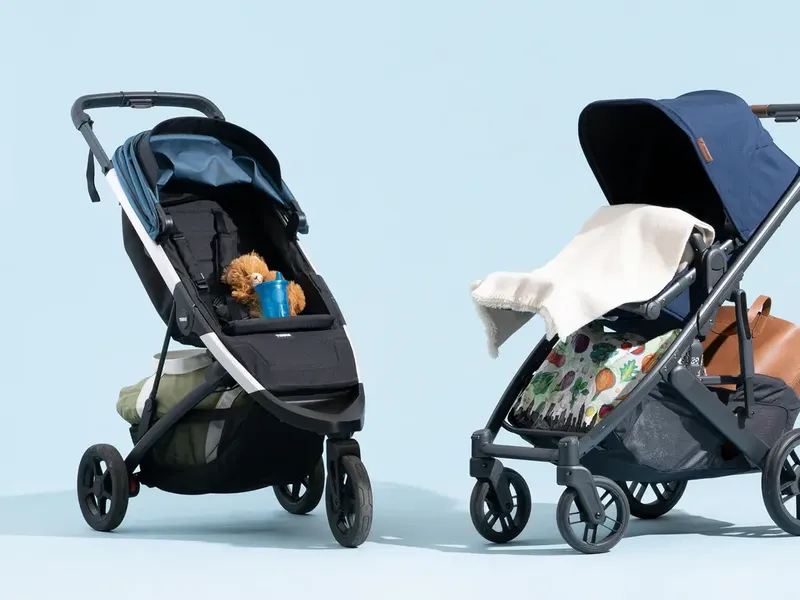
Understanding Pushchair Options
Navigating the world of pushchairs can feel overwhelming, especially when deciding between LIGHT and HEAVY options. Both types bring unique benefits to the table, and understanding these differences is essential to finding the perfect fit for your lifestyle. Whether you frequent busy city streets or enjoy leisurely walks in the countryside, the right pushchair can make all the difference in your daily adventures.
In this article, we’ll delve into the BASICS of pushchairs, weighing the PROS and CONS of light and heavy models. We’ll help you assess which type suits your urban lifestyle or countryside explorations best. You’ll also find practical tips for budgeting and hear real-life testimonials that might just shape your decision. So, let’s embark on this journey together, ensuring you choose a pushchair that fits seamlessly into your life!
The Basics of Pushchairs
When diving into the world of pushchairs, it’s crucial to first understand what distinguishes light pushchairs from their heavy counterparts. At their core, pushchairs are designed to carry your little one while providing comfort, safety, and ease of use for you as a parent.
What is a Light Pushchair?
Light pushchairs are typically designed for easy maneuverability and portability. They often weigh less than 7 kilograms and feature a streamlined design. You’ll notice that many models fold compactly, perfect for parents who need to dart in and out of public transport or tuck them away in small spaces. The convenience factor is key here; imagine effortlessly lifting your pushchair onto a bus or into the boot of your car after a family outing!
What is a Heavy Pushchair?
On the flip side, heavy pushchairs can weigh anywhere from 9 to 15 kilograms and are often sturdier in construction. They may come equipped with robust features like larger wheels, advanced suspension systems, and extended canopies for weather protection. These pushchairs are usually better suited for rough terrains or longer walks in the park, providing stability and comfort over various surfaces.
Key Features to Consider
- Weight: Light pushchairs are easy to carry, while heavy pushchairs offer durability.
- Foldability: Light models often fold uniquely for easy transportation; heavier ones may not have this feature.
- Comfort: Heavy pushchairs usually have more padding and can handle uneven surfaces better.
- Usage: Think about your daily routine—will you mostly be in a city or exploring the countryside?
With these fundamental insights in place, you can start to frame your preferences based on your daily life. Next, we’ll explore the pros and cons of each model type to help you narrow down your ideal choice.
Light Pushchairs: Pros and Cons
As you consider which pushchair to bring along on your parenting journey, let’s dive into the pros and cons of light pushchairs. These models have their own unique set of advantages that can make them appealing, especially for parents who lead busy lives.
Advantages of Light Pushchairs
Portability: One of the biggest perks of a light pushchair is its weight. Typically less than 7 kilograms, these pushchairs are incredibly easy to carry and manoeuvre. Think about the times when you need to hop on the tube or navigate a busy street; a light pushchair glides with you!
Easy Folding Mechanisms: Most light pushchairs feature intuitive folding designs, allowing you to collapse them quickly with one hand. This is especially handy when your other hand is busy wrangling a toddler or carrying shopping bags.
Small Storage Footprint: If you live in a flat or have limited storage space, light pushchairs can easily tuck away in a cupboard or the corner of your hallway. Models like the Babyzen YOYO or Joie Pact are particularly noted for their compact designs.
Affordability: Generally, light pushchairs are more budget-friendly. If you’re looking for a reliable option without breaking the bank, you can find great models that won’t leave your wallet feeling empty.
Disadvantages of Light Pushchairs
Comfort and Support: While light pushchairs are convenient, they may lack the features that provide extra comfort, like padded seats or extensive suspension systems. For longer outings, this could become an issue.
Durability Concerns: Some light models may not hold up as well on rough terrain or uneven surfaces. If you’re planning family hikes or countryside strolls, a light pushchair might struggle with the demands.
Limited Storage Space: Light pushchairs often come with smaller baskets, so you may find it challenging to carry all your essentials on outings.
As with any parenting decision, weighing these pros and cons against your lifestyle is crucial. You’ll want to think about your typical outings and what’s most important to you in a pushchair. Next, we will discuss the pros and cons of heavy pushchairs, exploring how they might better serve a different set of needs.
Heavy Pushchairs: Pros and Cons
When considering the right pushchair for your family, heavy pushchairs present a compelling option that comes with their own set of advantages—and a few drawbacks you should keep in mind.
Advantages of Heavy Pushchairs
Sturdiness and Stability: One of the biggest benefits of heavy pushchairs is their construction. With weights typically ranging from 9 to 15 kilograms, these models often boast a more robust frame, making them ideal for various terrains. Whether you’re walking on cobblestones in a quaint UK town or tackling a muddy path in the countryside, you can count on a heavy pushchair to keep you steady.
Enhanced Comfort Features: Heavy pushchairs generally come equipped with superior padding, larger seats, and better suspension systems. Brands like Silver Cross or Bugaboo often integrate these comfort-focused aspects. Imagine your little one snuggled into a cushioned seat, enjoying a smooth ride, even over bumps!
Ample Storage Space: If you’re an avid parent who carries everything from snacks to spare clothes, heavy pushchairs often include larger storage baskets. This means you can stock up on all the essentials for a day out, eliminating the hassle of juggling bags or leaving vital items behind.
Weather Resilience: Many heavy pushchairs offer extended canopies and additional protective features against rain or sun. This is particularly useful if you often venture out in less predictable British weather.
Disadvantages of Heavy Pushchairs
Weight and Portability: The trade-off for all that sturdiness is weight. Heavier pushchairs can be difficult to lift and carry. If you frequently use public transport or need to navigate stairs, this can become a hassle.
Maneuverability: While heavy pushchairs are stable, they may be less nimble in tight spaces. Navigating through busy markets or navigating narrow aisles can feel like a workout, particularly if you’re in a hurry.
Storage Space Requirements: Due to their bulkier frames, heavy pushchairs often require more storage space at home. If you’re short on room, finding a suitable spot for a heavy model could be a challenge.
Understanding these pros and cons can help you make a more informed decision as you evaluate your lifestyle and needs. Up next, we’ll explore how these options perform in various environments, focusing on city life versus countryside adventures.
City Life: Which Pushchair Works Best?
When you’re navigating the hustle and bustle of urban life, your pushchair needs to adapt just as quickly as you do! In this section, we’ll explore how both light and heavy pushchairs fare in the heart of the city, factoring in aspects like public transport compatibility, navigating busy streets, and fitting into those ever-tighter spaces.
Navigating Public Transport
If you’re a frequent tube or bus rider, a light pushchair often reigns supreme. Weighing in at around 7kg, these pushchairs are easy to lift onto public transport and won’t weigh you down. Models like the Mamas & Papas Armadillo can fold down compactly, making it a breeze to find a spot amongst the rush of commuters.
Conversely, if you prefer a heavy pushchair with robust features for stability, you may find yourself wrestling with weight on the escalator or struggling to fold it in a crowded bus. Although some heavier models might boast extensive storage and comfort, their bulk can make public transport a bit of a challenge.
Street Maneuverability
In a busy city environment, the ability to maneuver through crowds is essential. Light pushchairs excel here, allowing you to navigate swiftly around pedestrians, outdoor cafes, and market stalls. Whether you need to dart around roadworks or squeeze between parked cars, these lightweight models adapt with ease.
However, if you’re tackling rough urban terrains or uneven cobbled streets, a heavy pushchair may offer better stability. While its bulk can sometimes hinder tight turns, the sturdy frame ensures comfort for your little one, even on less polished pathways.
Fitting Into Tight Spaces
For city dwellers with limited living space, storage becomes a key consideration. Light pushchairs can often be tucked into corners or squeezed into small flat foyers with ease. Opting for compact models means you won’t have to sacrifice precious living area.
On the other hand, heavy pushchairs take up more room, both in storage and in crowded public areas. If your lifestyle is heavy on interactions with busy cafes or shopping centres, the larger footprint of a heavy model might lead you to rethink your choices.
As you weigh these urban considerations, keep in mind how your day-to-day life unfolds. Up next, we’ll venture into the great outdoors to evaluate how each pushchair type holds up in the countryside.
Countryside Adventures: Evaluating Durability and Comfort
For many parents who love to explore the breathtaking landscapes of the UK, finding a pushchair that can handle rough terrain while keeping your little one comfortable is paramount. When it comes to countryside adventures, you’ll want to focus on a few key factors: off-road wheels, suspension systems, and overall comfort.
Off-Road Wheels
A robust set of wheels is essential for navigating through fields, woodland paths, or gravel tracks. Heavy pushchairs often come equipped with larger, puncture-resistant wheels that can tackle a variety of surfaces effortlessly. For instance, the Silver Cross Pioneer features durable wheels designed specifically for off-road adventures, allowing for better grip and control on uneven ground.
Conversely, many light pushchairs tend to have smaller wheels, making them less suited for rugged terrains. While models like the Maclaren Quest are perfect for city strolls, their lightweight wheels may struggle in the countryside, especially on softer ground or over roots and rocks.
Suspension Systems
Suspension plays a significant role in comfort during outdoor excursions. Heavy pushchairs typically boast advanced suspension systems that absorb shocks, ensuring a smoother ride for your baby even when traversing bumpy trails. The Bugaboo Fox is renowned for its exceptional suspension, offering the kind of comfort that keeps your little one blissfully happy, even on longer journeys.
In contrast, many light pushchairs may lack this feature, resulting in a bumpier experience. If you’re planning on taking the pushchair off the driveway and into nature, consider skipping the lightweight option in favour of additional comfort.
Overall Comfort
Ultimately, your child’s comfort should always be a top priority. Heavy pushchairs usually have padded seats that provide added support for your little one during lengthy strolls through the countryside. You want them to enjoy the fresh air without getting too cranky from discomfort!
While light pushchairs are great for quick trips, their minimalistic design may not provide the same level of comfort for extended outings. If your adventures involve longer walks, you may find returning to a heavy model makes all the difference in your child’s experience.
As you gear up for your outdoor explorations, consider how each type aligns with your preferred countryside activities. Next, we’re going to tackle budget considerations to help you make the best choice without breaking the bank.
Budgeting for Your Pushchair
When it comes to pushchair shopping, budget is often one of the most significant factors influencing your decision. Let’s break down what you can expect financially when comparing light and heavy pushchairs and how to maximise the value of your investment.
Price Ranges
Pushchairs in the UK can range widely in price—from budget options around £50 to designer models costing upwards of £1,000. On average, light pushchairs generally hover between £100 to £500, whereas heavy pushchairs often sit in the £250 to £1,200 range.
If you’re leaning towards a light pushchair, look for brands like Joie or Chicco. They offer affordable yet reliable models with good durability. Meanwhile, heavy pushchairs from brands such as Bugaboo or Silver Cross come with a steeper price tag, but they’re built to last and may offer features that pay off in comfort and longevity.
Long-Term Value
While spending more upfront may feel daunting, consider the long-term value a heavy pushchair can offer. They tend to have a longer lifespan due to sturdier construction and often include features designed for multi-stage use. Brands like Out’n’About have models that can adapt as your child grows, which can save you money over time.
Resale Options
Another financial aspect to consider is resale potential. Heavy pushchairs typically have a higher resale value due to their durability and brand reputation. For instance, if you purchased a Baby Jogger City Mini GT, you might recoup a significant portion of your initial investment when selling. In contrast, light pushchairs may depreciate faster, particularly if they’re not from a well-known brand.
Where to Shop
If you’re ready to start shopping, explore a mix of retail options. High-street stores like Mothercare and John Lewis often have in-store demonstrations to help you get a feel for different pushchair styles. Online platforms like Amazon and eBay are worth checking too, especially for deals on second-hand models.
By understanding your budget and the potential value of your investment in a pushchair, you can make a well-informed decision that aligns with both your lifestyle and financial goals. Up next, we’ll hear some real-life experiences from fellow parents, helping you gauge how various pushchairs perform in everyday scenarios.
Real Life Experiences: Testimonials and Recommendations
When it comes to choosing the right pushchair, sometimes the best insights come from those who have walked the path before you. Here’s what fellow parents have to say about their experiences, along with their recommendations on specific models and shops across the UK.
Light Pushchair Experiences
Emma, a mum from London, swears by her Mamas & Papas Armadillo. “It’s so lightweight,” she says. “I can easily fold it up and lift it onto buses. Plus, it fits perfectly in my flat without taking up too much room.” She recommends checking out stores like John Lewis or Mothercare for firsthand testing.
Similarly, Mark, a dad from Manchester, loves his Babyzen YOYO+. “It’s super compact and incredibly handy when you’re travelling. I took it to Paris, and it was a dream manoeuvring through the streets and cafes!”
Heavy Pushchair Experiences
On the other hand, Sarah from Bristol cannot praise her Bugaboo Fox enough. “It’s a bit heavier, but worth every penny! The comfort for my baby is unmatched, and the suspension makes walks in the park a breeze. I bought mine from JoJo Maman Bébé, and the customer service was fantastic.”
James, living in the Scottish Highlands, opted for the Silver Cross Pioneer. He emphasizes its sturdiness for rural walks: “It handles rough terrain like a champ, and my toddler naps like a dream in it. I suggest trying it out at your local Mothercare to see how it feels in person.”
Final Tips
When making your decision, consider visiting stores where you can physically test out different models. You’ll get a feel for the comfort, weight, and ease of use. The personal touch from shop staff can also help illuminate features you might otherwise overlook.
Armed with these real-world experiences, you’re now closer to finding the perfect pushchair for your family. In the next section, we’ll wrap up with some essential tips to consider as you make your final decision.
Light vs Heavy Pushchairs Comparison
| Category | Light Pushchairs | Heavy Pushchairs |
|---|---|---|
| Portability & Fold | One-handed fold, compact—fits in trunks and overhead bins | Bulkier, more steps to fold, needs more storage space |
| Terrain Handling | Best on smooth urban surfaces, often limited suspension | Robust wheels & suspension for rough terrain, parks, countryside |
| Comfort & Safety | Light padding, fewer lux features | Deep recline, padded seats, better bump absorption |
| Storage Space | Smaller basket—may struggle with groceries & longer trips | Larger under-seat storage—ideal for family outings |
| Budget & Longevity | More affordable, great for travel or occasional use | Higher purchase price, often lasts longer—good investment |
| Best For | Frequent travellers, city dwellers, small-car families | Families on uneven terrain, long walks, multi-child use |
Choosing the Right Pushchair for You
Ultimately, the choice between a light and heavy pushchair hinges on your lifestyle and needs. If you frequently navigate city streets, a light pushchair can offer the portability and convenience you crave. On the other hand, if you enjoy weekend adventures in the countryside, a heavier pushchair may provide the durability and comfort your little one needs.
By reviewing the key factors discussed in this article, you’ll feel prepared to choose the best option for your family, ensuring every outing is a breeze. Don’t hesitate to visit local retailers or online shops such as John Lewis or Mothercare to test different models in person. Your perfect pushchair is out there, ready to support you and your baby as you explore the world together!
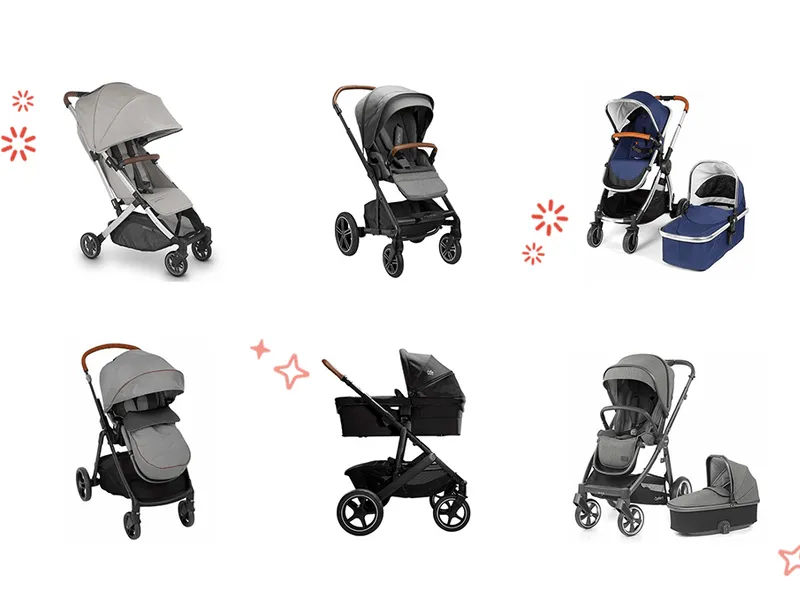
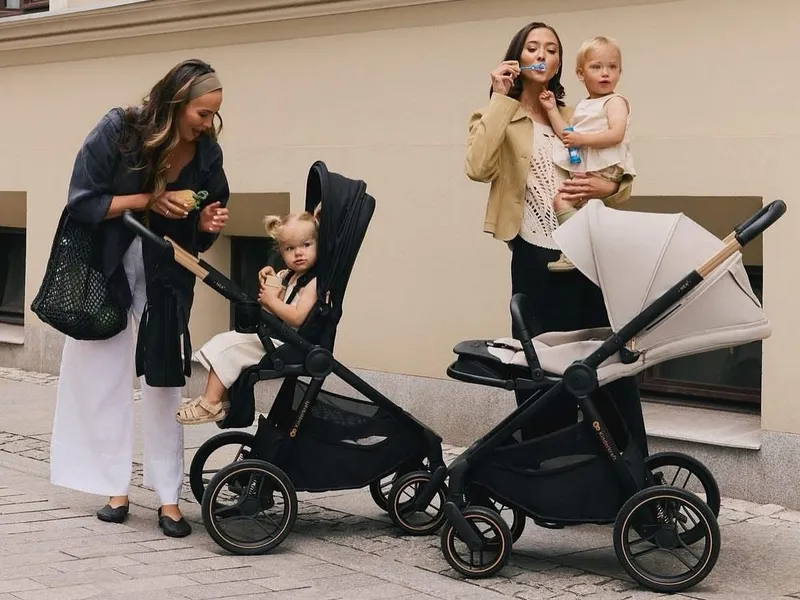
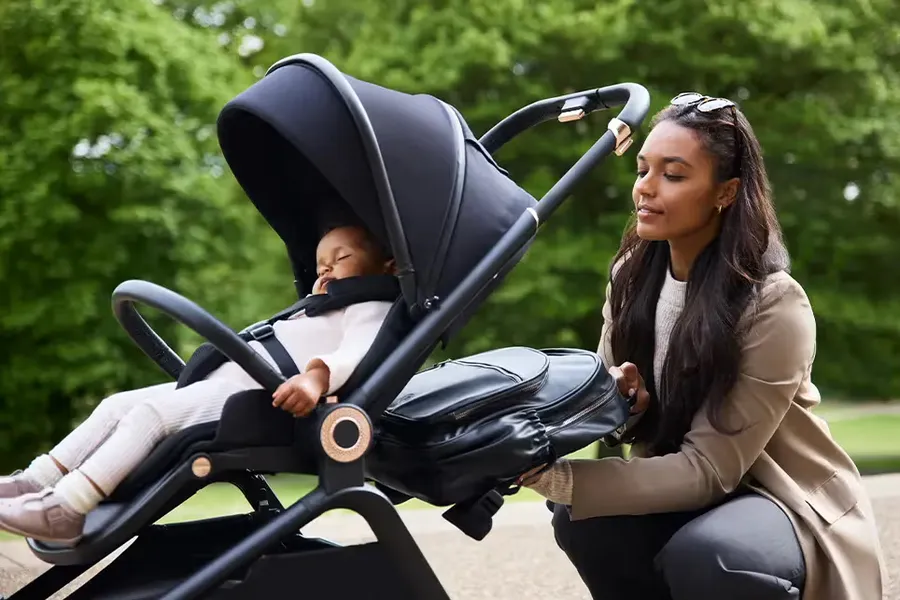
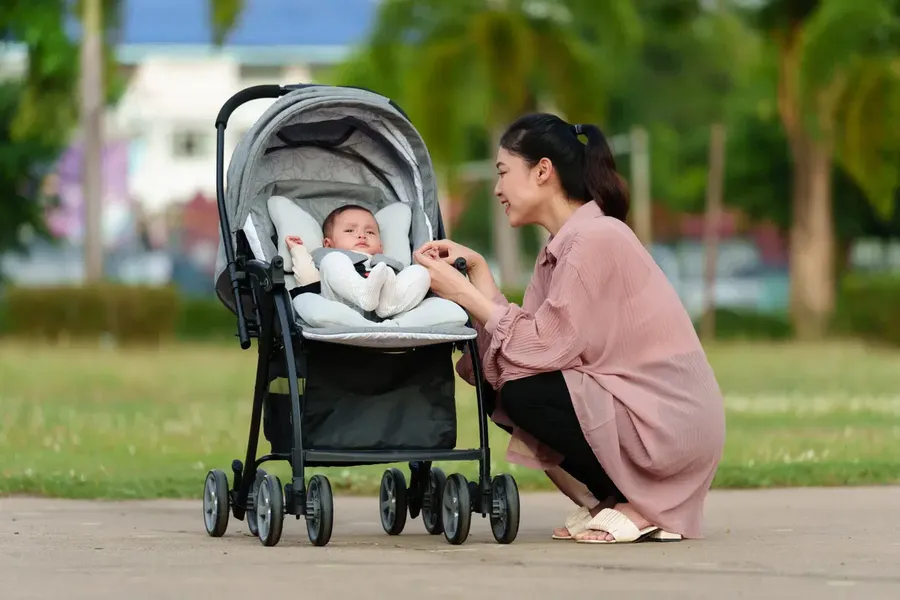
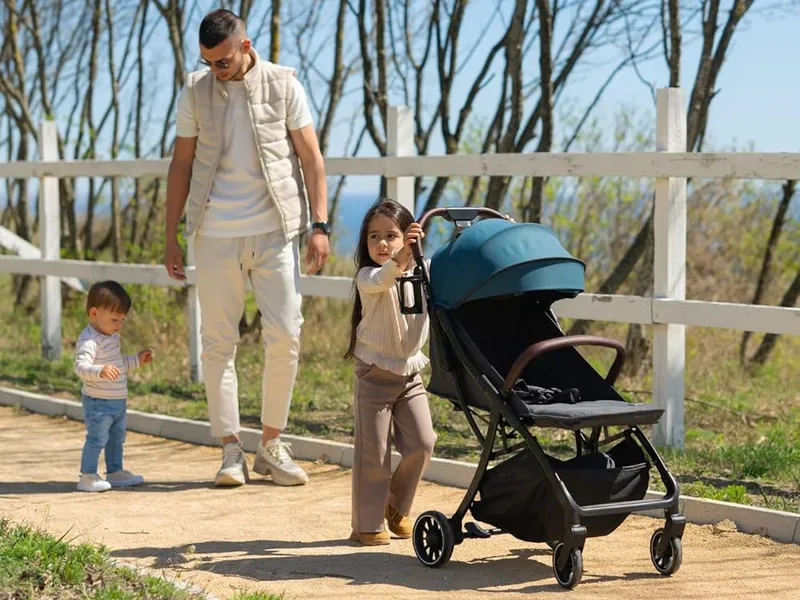
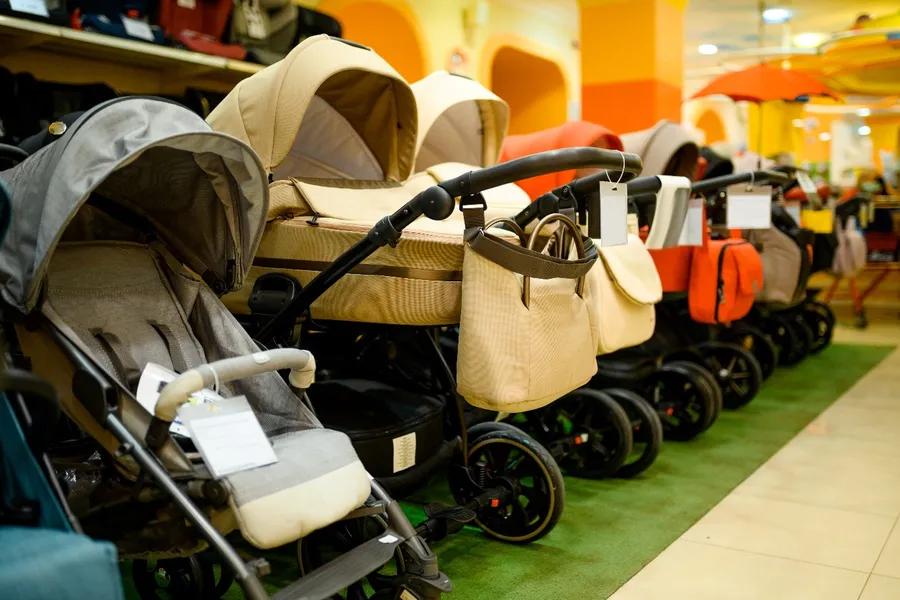

I have a light pushchair and honestly, it’s been a game-changer for getting around the city! Super easy to fold and carry up the subway stairs. Sometimes it feels a bit wobbly when going over bumps, though. Anyone else had this issue? 😂
I’ve heard some light models can be shaky. What brand do you have?
Glad to hear you’re enjoying your light pushchair, Sarah! Wobbliness can happen depending on the terrain. Have you checked if the wheels are properly aligned?
Heavy pushchairs might be sturdy, but man, they are a workout! 💪 I took mine to the park last weekend and felt like I was pushing a small car! There’s no way I’d take it to the city though, too much hassle!
Haha, right? I had a heavy one and ended up never using it outside of our car. Who needs a gym subscription? 😂
John, the extra weight can definitely be a workout! But some people prefer the stability they offer. What brand was yours?
Great article! Loving the comparisons. I’m definitely wanting something lightweight since I do a lot of walking and public transport. The heavy ones are a no-go for me! 👍
Exactly! It’s so much easier getting on buses or trains with light pushchairs.
Thanks for your feedback, Hannah! Lightweight models are definitely a hiker’s best friend!
City life? Forget it. Heavy pushchair if you’re looking for something durable for rough terrains, not easy on public transport though. I’ve got an old-school one and I love it, but I can’t take it out as much as I want to. 🥲
Durability is definitely a big plus! Have you considered a model that’s lighter but still sturdy?
Totally feel you, Kyle! The city streets really don’t do heavy pushchairs any justice!
I don’t have kids yet, but I try to help out my friends with their pushchairs. Light ones are great for quick trips, but the heavy ones do feel safer for long walks. Would love a pushchair that can do both! Any thoughts?
A lot of parents swear by versatile models! Have you checked out any yet?
Yeah! I think a good all-rounder is what most parents would agree on. Any brands you’ve looked into?
Anyone else feel like making the decision is half the battle? My partner and I can’t agree on what we want! 😅 I’m leaning towards light, but he’s all about that durability. How do you compromise on these things?
Compromise is key, Ella. Maybe look for models that balance both features?
Good luck! We ended up getting two—one light for the city and a heavier one for family road trips!
Honestly, just make sure you have a budget before you even start looking. 🙄 I went overboard thinking I needed all the features and I regret it since I could’ve saved almost 200 bucks!
That’s a solid tip, Liam! Setting a budget can really help narrow down options.
So true! I thought I’d fall for the fancy one but ended up with a budget-friendly model that works just as well!
I’ve been trying to decide between light and heavy because I do both city trips and countryside walks. 🤔 The article was helpful, but I still feel a bit lost. Any recommendations from actual users?
Great question, Nina! A hybrid model could be the perfect fit. Have you checked out any specific brands?
I get that! For mixed use, a hybrid might be the best option! I have one, and it’s worked great for both places!
Just got a heavy pushchair after reading everything, and I’m still on the fence. 😬 Like, it feels so solid, but wow, I am out of breath carrying it upstairs! #FitnessChallenge 😂
Solid advice! Maybe practice makes perfect? Or consider using it in more open spaces.
That’s a common struggle! But at least you’re getting a workout in!
After reading this, I kinda feel like I need both pushchairs depending on where we’re headed! 😂 Is that excessive or smart?
I mean, if you can manage it, why not? Gotta be prepared for any adventure!
Why not both? If space and budget allow, it could be a convenient option!